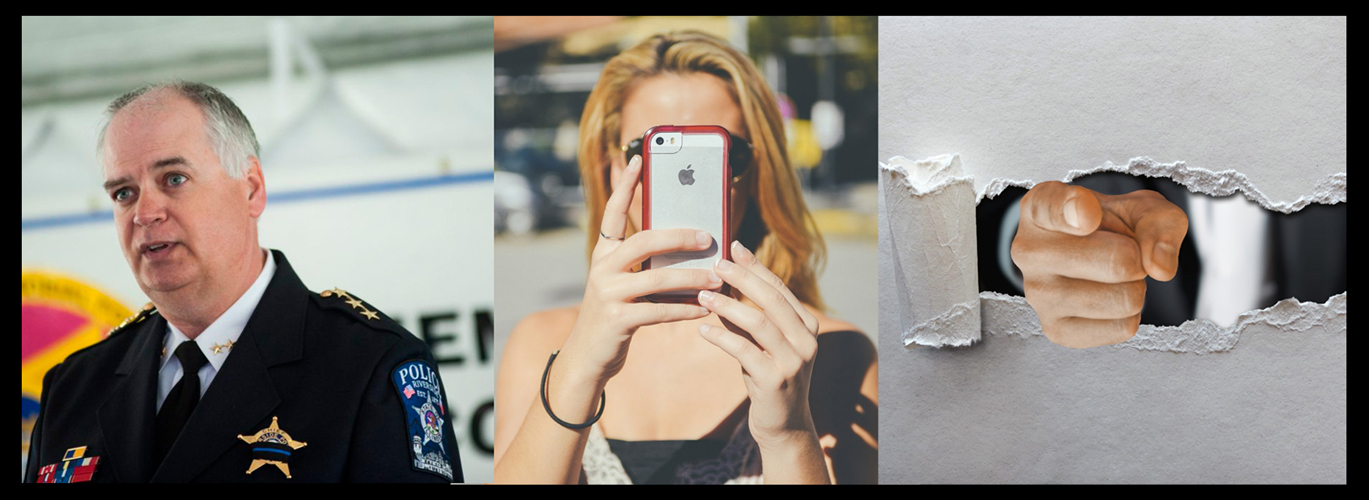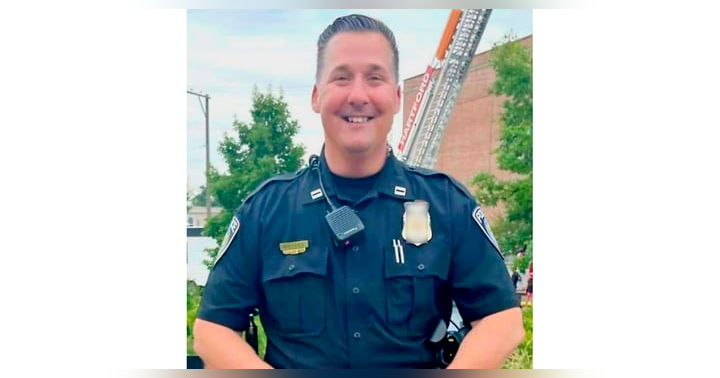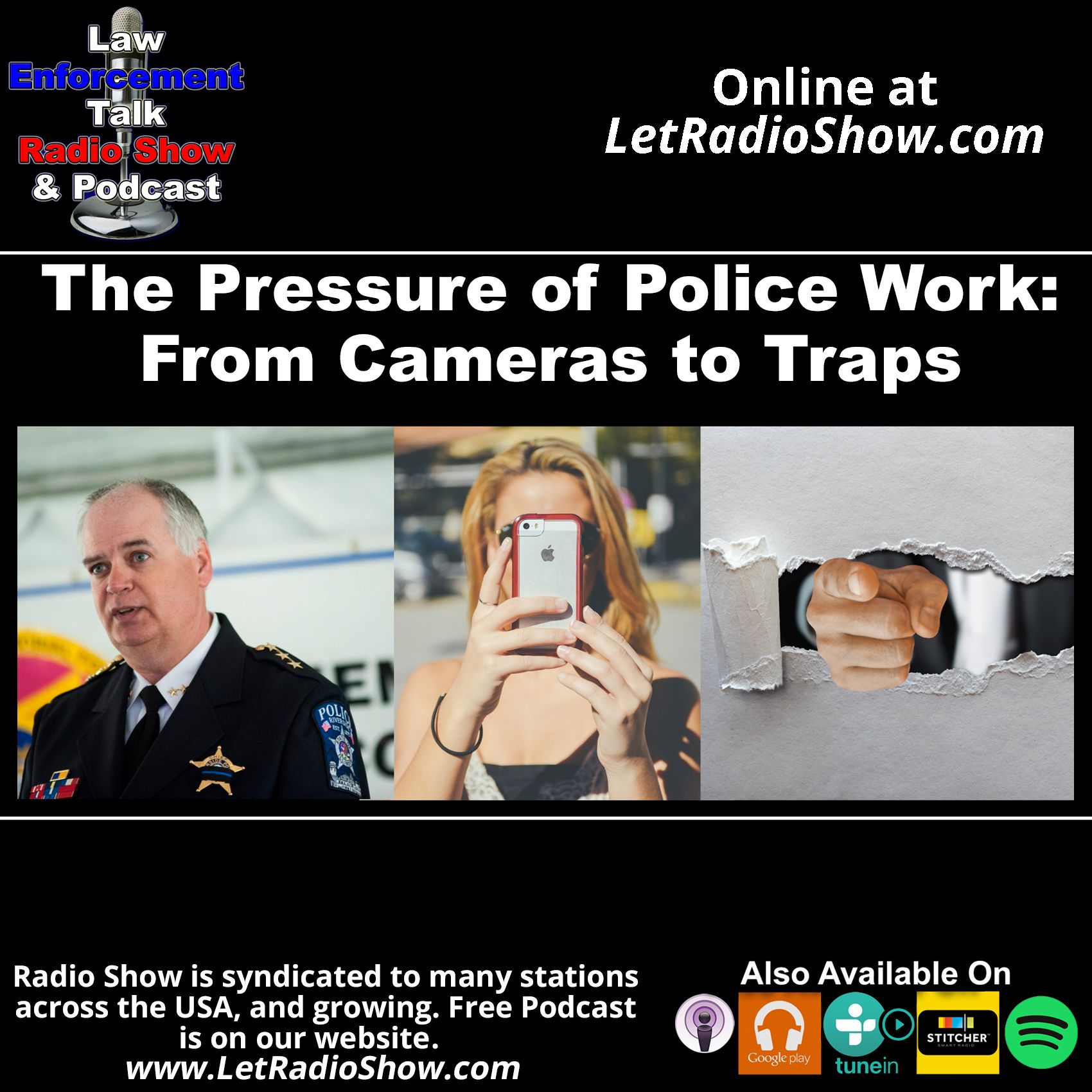The Evolving Challenges of Modern Policing: More Than Just Crime Fighting

The Evolving Challenges of Modern Policing: More Than Just Crime Fighting. Police officers today face an increasingly complex and stressful environment. The traditional role of crime-fighting is now intertwined with constant surveillance, intense public scrutiny, and the rise of so-called "First Amendment auditors." These pressures, coupled with internal challenges like micromanagement and the constant threat of violence, are taking a toll on the well-being of our law enforcement officers. In this post, we'll delve into these evolving challenges and explore their impact. This discussion builds upon the insights shared in our latest podcast episode, The Pressure of Police Work: From Cameras to Traps, where we spoke with Retired Riverside, Illinois Police Chief Tom Weitzel about the mounting stress on officers. We encourage you to listen to the episode for a more in-depth conversation.
Introduction: The Evolving Landscape of Policing
Policing has never been an easy job. However, the demands and expectations placed on officers today are vastly different from even a decade ago. The advent of ubiquitous technology, coupled with increased public awareness and scrutiny, has created a "fishbowl" effect, as described by Chief Weitzel in our recent podcast. Every action, every interaction, is potentially recorded and broadcasted, leading to a heightened sense of pressure and a fear of making mistakes. This constant surveillance, while intended to promote accountability, can also create a climate of fear and distrust, hindering officers' ability to effectively perform their duties.
READ ABOUT THE HOST OF THE RADIO SHOW AND PODCAST FOR FREE.
Beyond the technological advancements, societal shifts have also played a significant role in reshaping the policing landscape. Increased polarization, changing community expectations, and a growing distrust of authority figures have all contributed to a more challenging environment for law enforcement. Officers are now expected to be social workers, mediators, and mental health professionals, in addition to their traditional roles of crime prevention and law enforcement. This expanded scope of responsibility, often without adequate training or resources, adds further strain to an already demanding profession.
The Mounting Pressures on Modern Officers
The pressures on modern police officers are multifaceted and relentless. Consider the following factors:
- Constant Surveillance: Body cameras, dash cameras, and ubiquitous cell phone cameras mean that officers are constantly being recorded. This can lead to a feeling of being "under the microscope," where every action is scrutinized and potentially misinterpreted.
- Public Scrutiny: Social media has amplified the impact of negative incidents, leading to widespread public outrage and calls for accountability. Even minor mistakes can be blown out of proportion, damaging an officer's reputation and career.
- Micromanagement: Some police departments are characterized by excessive micromanagement, where officers are subjected to constant oversight and second-guessing. This can stifle initiative and create a sense of distrust between officers and their superiors.
- Risk of Violence: The threat of violence is an inherent part of policing. Officers face the possibility of being attacked or injured on any given day, which can take a significant toll on their mental and physical health.
- Shift Work: The unpredictable nature of police work often requires officers to work irregular shifts, disrupting their sleep patterns and impacting their family life. This can lead to fatigue, stress, and burnout.
- Media Misrepresentation: The media often portrays police officers in a negative light, focusing on controversial incidents and perpetuating stereotypes. This can erode public trust and make it more difficult for officers to build relationships with the communities they serve.
These pressures, when combined, can create a toxic environment that negatively impacts officers' well-being and effectiveness. It's crucial to acknowledge these challenges and work towards creating a more supportive and understanding environment for our law enforcement professionals. The Evolving Challenges of Modern Policing: More Than Just Crime Fighting.
The Rise of First Amendment Auditors and Their Impact
One of the more recent and controversial challenges facing police officers is the rise of "First Amendment auditors." These individuals, often armed with cameras and a knowledge of constitutional law, intentionally provoke interactions with law enforcement to test the boundaries of their rights. While some argue that this is a form of citizen journalism and a way to hold police accountable, others see it as a form of harassment and a deliberate attempt to undermine law enforcement.
First Amendment auditors often target public spaces like post offices, courthouses, and even police stations, recording their interactions with government employees and law enforcement officers. They may ask confrontational questions, refuse to comply with instructions, and generally attempt to elicit a reaction from officers. The goal is often to capture a misstep or perceived violation of rights on video, which can then be uploaded to social media for views and income. As Chief Weitzel pointed out in our podcast, "They set traps for police."
LISTEN TO THE FREE PODCAST: Police Under Cover Truths: Inside His DEA Career
The impact of these encounters on police officers can be significant. Officers may feel pressured to react defensively, knowing that any mistake will be recorded and potentially shared online. This can lead to anxiety, stress, and a reluctance to engage with the public. Furthermore, the time and resources spent dealing with First Amendment auditors can detract from other important law enforcement activities. While upholding constitutional rights is paramount, the intentional provocation and harassment tactics employed by some auditors raise serious concerns about their motivations and the overall impact on public safety. The Evolving Challenges of Modern Policing: More Than Just Crime Fighting.
Beyond Cameras: Other Sources of Stress
While cameras and First Amendment auditors represent a significant source of stress for modern police officers, they are not the only factors contributing to the problem. Internal pressures, such as micromanagement, lack of support from superiors, and inadequate training, can also take a toll on officers' well-being. The constant exposure to traumatic events, such as violent crimes and accidents, can lead to post-traumatic stress disorder (PTSD) and other mental health issues. Furthermore, the social isolation that often accompanies police work can exacerbate these problems, making it difficult for officers to seek help or connect with others.
The expectation that officers must always be "tough" and "in control" can also prevent them from seeking mental health treatment. The stigma surrounding mental health in law enforcement can be a significant barrier, as officers may fear being seen as weak or unfit for duty if they admit to struggling with stress or trauma. It's crucial to create a culture of support and acceptance within police departments, where officers feel comfortable seeking help without fear of judgment or retaliation. As Chief Weitzel emphasized, officers need safe spaces to discuss their experiences and access mental health resources.
The Privacy Dilemma: Balancing Transparency and Officer Well-being
The push for greater transparency in law enforcement has led to the widespread adoption of body cameras, dash cameras, and other surveillance technologies. While these tools can be valuable for promoting accountability and building public trust, they also raise concerns about the privacy of police officers. The constant recording of their actions can create a feeling of being watched and scrutinized, potentially hindering their ability to perform their duties effectively.
READ THIS FREE ARTICLE: The Zodiac Killer: America’s Enduring Mystery
Furthermore, the release of body camera footage to the public can expose officers to unnecessary scrutiny and criticism, even when their actions are justified. The potential for misinterpretation and the lack of context can lead to unfair accusations and damage to an officer's reputation. It's crucial to strike a balance between transparency and privacy, ensuring that the use of surveillance technology does not unduly infringe on the rights and well-being of police officers. Policies should be in place to protect officer privacy, such as limiting access to body camera footage and providing clear guidelines for when and how the footage can be released to the public. The Evolving Challenges of Modern Policing: More Than Just Crime Fighting.
The Importance of Community Support and Open Conversation
Ultimately, addressing the evolving challenges of modern policing requires a collaborative effort between law enforcement agencies, community leaders, and the public. Building trust and fostering positive relationships between officers and the communities they serve is essential for creating a safer and more supportive environment for everyone. This requires open and honest conversations about the challenges facing law enforcement, as well as a willingness to listen to and address community concerns.
Community support can take many forms, from attending local police events to simply offering a word of encouragement to an officer on the street. It's also important to recognize the sacrifices that police officers make and to show appreciation for their service. By working together, we can create a stronger and more resilient community that supports both its law enforcement officers and its citizens.
Conclusion: Supporting Our Officers in a Changing World
The pressures facing modern police officers are undeniable and multifaceted. From constant surveillance and the rise of First Amendment auditors to internal challenges and the threat of violence, the job is becoming increasingly stressful. Addressing these challenges requires a multi-pronged approach, including providing adequate training and resources, promoting mental health awareness, fostering a supportive work environment, and building stronger relationships with the community. As Chief Weitzel wisely stated, "The stress is real, and it can be devastating. But we need to talk about it, not hide it." By fostering open conversation, demonstrating support, and working together, we can help our officers navigate these evolving challenges and ensure they are able to effectively serve and protect our communities. Don't forget to listen to our full conversation with Chief Weitzel in The Pressure of Police Work: From Cameras to Traps for more insights and perspectives on this critical issue. The Evolving Challenges of Modern Policing: More Than Just Crime Fighting.






















